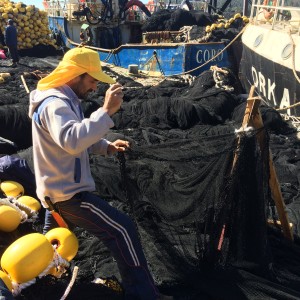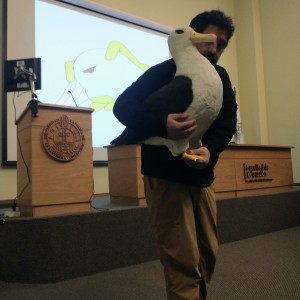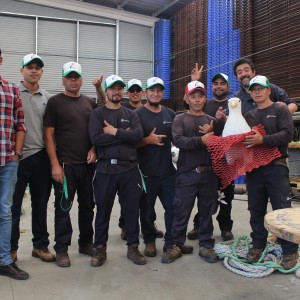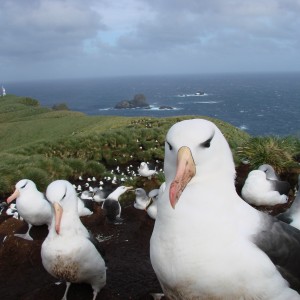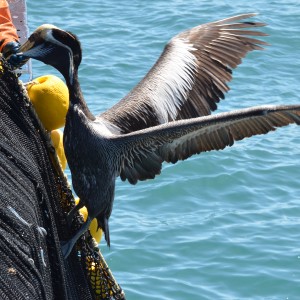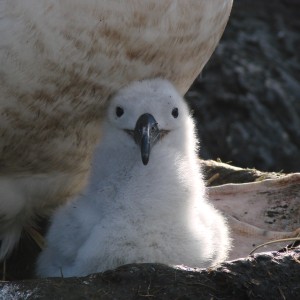Cristián Suazo
2022 IVLP Impact Award Project: People of the Sea and their Seabirds - Recovering Links for Best Practices in Chilean FisheriesChile
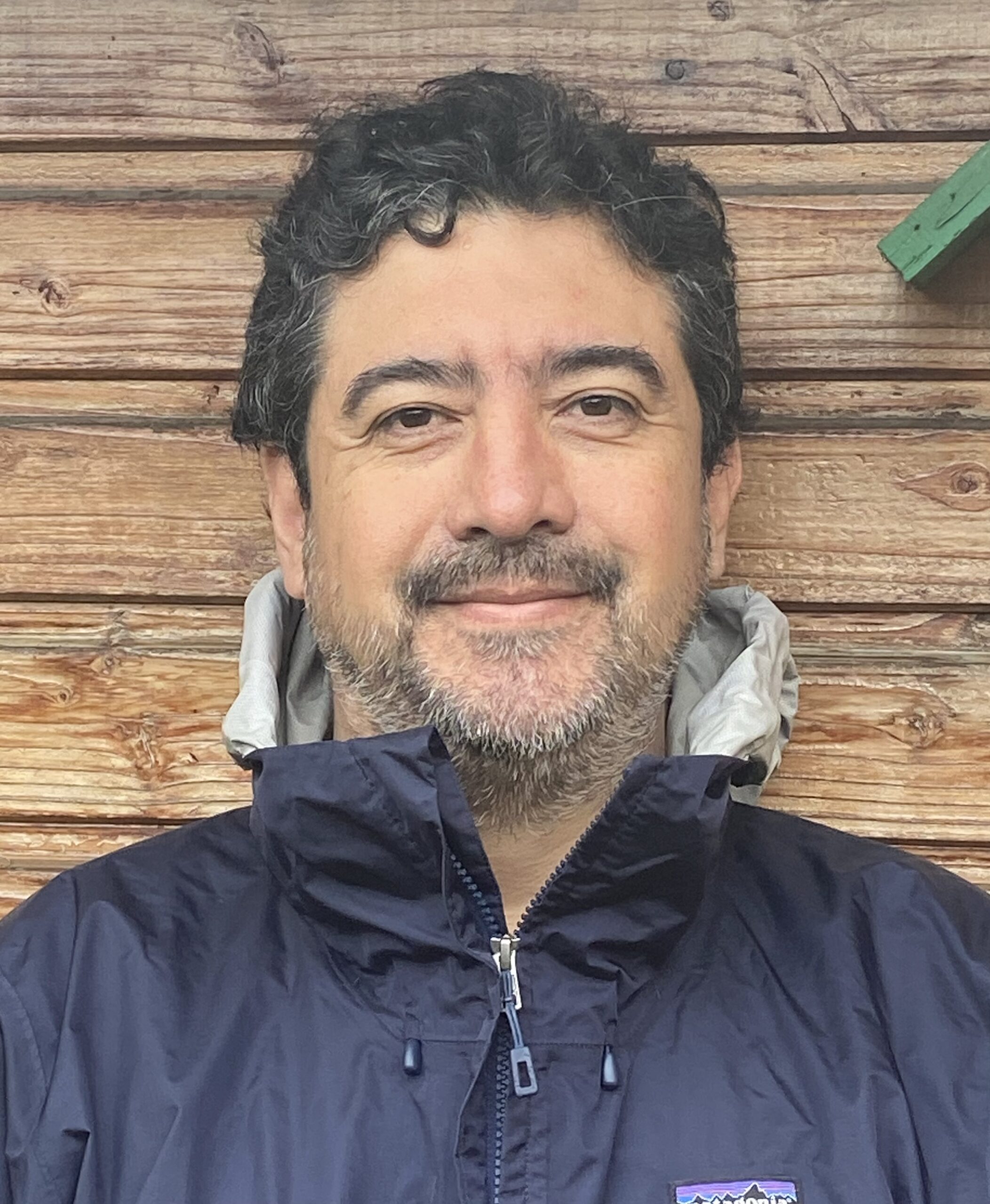 Cristián Suazo is a Chilean marine biologist focused on the conservation of threated seabird species. During the last 16 years, he dedicated himself to the study of the biology and fundamental ecology of marine sentinel species such as albatrosses and petrels. His work is geographically distributed in the South Pacific, Humboldt Current System, and sub-Antarctic waters. In these contrasting regions, he works at sea applying science basis solutions for at-sea environmental issues. Cristián studies seabird bycatch in small-scale and industrial fisheries, marine pollution and ghost fishing. He also works for the adoption of best practices and compliance with mitigation measures onboard.
Cristián Suazo is a Chilean marine biologist focused on the conservation of threated seabird species. During the last 16 years, he dedicated himself to the study of the biology and fundamental ecology of marine sentinel species such as albatrosses and petrels. His work is geographically distributed in the South Pacific, Humboldt Current System, and sub-Antarctic waters. In these contrasting regions, he works at sea applying science basis solutions for at-sea environmental issues. Cristián studies seabird bycatch in small-scale and industrial fisheries, marine pollution and ghost fishing. He also works for the adoption of best practices and compliance with mitigation measures onboard.
On land he works with albatrosses breeding in the sub-Antarctic islands of Diego Ramírez, south of Cape Horn. This work helped Cristián to understand and recommend actions for the conservation of threatened albatrosses in face of climate change, invasive species, marine protected areas, and best practices-seabird bycatch mitigation applied to key periods and areas beyond seabird colonies.
IVLP Impact Award Project: People of the Sea and their Seabirds - Recovering Links for Best Practices in Chilean Fisheries
The overall objective of this project was to generate a theoretical and practical training package on best fishing practices for fishers and authorities based on unpublished evidence from albatross colonies in southern Chile.
Through standardized material based on local conservation evidence, this project built bridges of content between fishers, compliance officers and decision makers through the delivery of a replicable and freely available training kit. The target audience was more than 6,000 industrial fishers, about 120,000 artisanal fishers nationwide and around 400 government and Chilean Navy compliance officers. Directly involved in the trainings and material development were 135 people, including fleet coordinators, fishery assistants, and crew members.
These training kits brought albatross life history traits and their fragility to human activity. They supported evidence of discarded fishing materials with evidence obtained from case studies in colonies. The kits also helped develop infographics, presentations and teaching tools for future instructors highlighting beneficial relationship with our seabirds for fisheries. Lastly, the project developed a pilot training plan for the annual event of the Chilean Congress of Marine Sciences for “instructors for best practices in fisheries. The best practices training videos from the project are available for download in both English and Spanish.
Since the industrialization of fishing, the links between fishers and non-target species have been diluted with the modernization of this activity. This has led some fisheries and officials in charge of complying with best practices on board to lack content for the recognition of impacts such as discarding fishing gear and materials facilitating ghost fishing. Seabirds such as albatross have had an ancestral relationship with seafarers in present-day Chile and where some fishers still recognize their value in finding fish, as well as their future opportunities for local economies such as tourism.
Building a transversal training kit to bring different users closer to a common problem such as ghost fishing and where best practices can improve the prospect of other species in the marine ecosystem from the starting point of the albatross can be maintained and replicated from this toolbox within public institutions and environmental and safety training departments of fishing companies and associations.
"The way of fishing is changing in the world, and we must move towards a more committed and responsible work at sea." - Fleet Manager
IVLP Exchange Experience
Cristián was a participant in the IVLP Project Combatting Illegal, Unreported, and Unregulated Fishing, organized by the U.S. Department of State and the Mississippi Consortium for International Development.
Cristián's exchange experience led to the development of his IVLP Impact Award Project: "Although I had already been working for several years in the search for environmental solutions linked to fisheries, this was one of the first experiences that helped me to get to know the diversity of conservation leaders from different countries and cultures."
U.S. Communities Visited Virtually
Washington, DC; Miami, FL; St. Petersburg, FL; Tallahassee, FL
